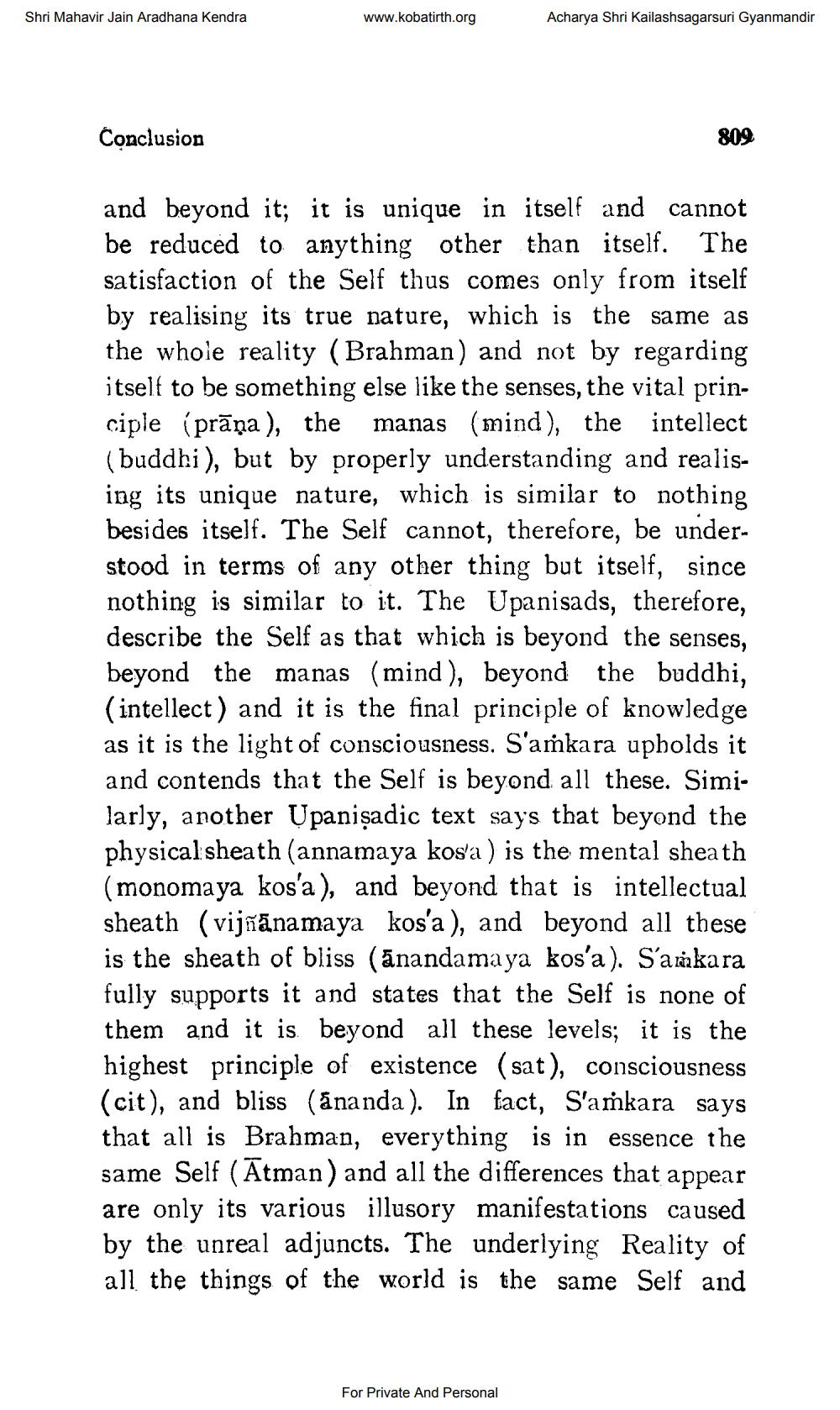________________
Shri Mahavir Jain Aradhana Kendra
www.kobatirth.org
Acharya Shri Kailashsagarsuri Gyanmandir
Conclusion
809
and beyond it; it is unique in itself and cannot be reduced to anything other than itself. The satisfaction of the Self thus comes only from itself by realising its true nature, which is the same as the whole reality (Brahman) and not by regarding itself to be something else like the senses, the vital principle (prāņa), the manas (mind), the intellect (buddhi), but by properly understanding and realising its unique nature, which is similar to nothing besides itself. The Self cannot, therefore, be understood in terms of any other thing but itself, since nothing is similar to it. The Upanisads, therefore, describe the Self as that which is beyond the senses, beyond the manas (mind), beyond the buddhi, (intellect) and it is the final principle of knowledge as it is the light of consciousness. S'aṁkara upholds it and contends that the Self is beyond all these. Similarly, another Upanişadic text says that beyond the physical sheath (annamaya kos'a ) is the mental sheath (monomaya kos'a), and beyond that is intellectual sheath (vijñānamaya kos'a), and beyond all these is the sheath of bliss (ānandamaya kos'a). Samkara fully supports it and states that the Self is none of them and it is beyond all these levels; it is the highest principle of existence (sat), consciousness (cit), and bliss (ánanda). In fact, S'aṁkara says that all is Brahman, everything is in essence the same Self (Atman) and all the differences that appear are only its various illusory manifestations caused by the unreal adjuncts. The underlying Reality of all the things of the world is the same Self and
For Private And Personal




